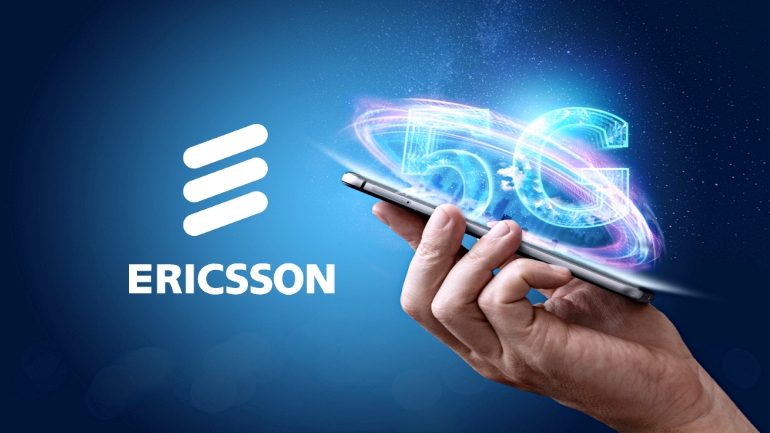Salt Security raises $20 million to protect APIs with AI US-based Salt Security, a cybersecurity startup that helps companies protect APIs, has closed a USD 20 million Series A round. The company plans to use the new capital to renew its investments in product development and expand its sales and marketing teams. Salt’s platform aims to prevent cyber attacks with a combination of AI and machine learning techniques. It analyzes a copy of the traffic from web, software-as-a-service, mobile, microservice, and the Internet of Things (IoT) app APIs. Salt uses this process to understand each API and creates the basis for normal behavior tailored to customers and their applications. After that, Salt reveals anomalies that are identified as indicators of an attack during reconnaissance. Read more at https://tinyurl.com/y88n2l7r Lenovo delivers world’s first 5G laptop with Verizon, EE, Sunrise and CMCC Lenovo, one of the world’s leading personal technology companies producing innovative PCs and mobile…
Google rolls out BeyondCorp for secure remote network access without a VPN Google has launched BeyondCorp Remote Access, a new security service designed to provide remote access to internal systems without using a virtual private network (VPN). This new cloud-native security product is based on a “zero-trust approach” and is founded on a system that Google originally built for internal use almost a decade ago. Google said that when the number of remote connections suddenly increases, the VPN architecture may not be able to handle the load. BeyondCorp Remote Access includes a database of every device authorized to connect, a security certificate installed on that device, and integration with a human resources database containing information about usernames and group memberships. Read more at https://tinyurl.com/ya4hhtsk Zoom adds encryption as it passes 300 million daily users Zoom Video Communications has launched an update of its virtual meetings software, adding encryption and new…
ITU platform to protect networks during Covid-19 The International Telecommunications Union (ITU) has introduced the Global Network Resiliency Platform to help global networks remain “safer, stronger and more connected” in the face of increasing strain and growing demand during the coronavirus crisis. ITU Secretary-General Houlin Zhao said, “The new platform will assist governments and the private sector in ensuring that networks are kept resilient and telecommunication services are available to all.” Also, this platform will collect relevant information and expertise on actions that telecommunication policymakers and others in the regulatory community can use to ensure that their telecom networks serve the needs of their country. Read more at https://tinyurl.com/vam4enm Remote working triggers demand for chips, laptops, and network goods As more and more employees switch to remote work during the outbreak of coronavirus disease, the demand for laptops, networking goods and supply chain components has increased substantially. Therefore, electronics retailers and…
The Chinese phone maker Xiaomi has officially introduced the Redmi Note 9S smartphone at an event live-streamed from the company’s Beijing headquarters. The mid-range Redmi Note 9S is the latest international version of the Redmi Note 9 Pro introduced in India earlier this month as the successor to its best-selling Redmi Note 8 Pro. Xiaomi said they have also customized a Redmi Note 9S special edition for Mi fans, dubbed the Mi Fans Family (MFF) 2020, to celebrate the 10th anniversary of the founding of Xiaomi on April 6, 2020. In terms of technical specifications, the Redmi Note 9S features a 6.67-inch Full HD+ display with a hole-punch in the center. The phone’s display and the back panel are covered with Corning’s tough Gorilla Glass 5 for better protection against damage from mishaps. This Android 10 device is powered by a high-performance octa-core 8nm Qualcomm Snapdragon 720G processor with the…
Hailo raises $60 million to accelerate the launch of its AI edge chip Israeli startup Hailo has raised further USD 60 million in series B funding for artificial intelligence (AI) chips, bringing its total financing to date to USD 88 million. This round, led by existing investors, was joined by strategic investors including ABB Technology Ventures, NEC Corporation, and London-based Latitude Ventures. Hailo said the new funding will help to roll out its Hailo-8 Deep Learning chip and to reach new markets and industries worldwide. The Hailo-8 could give edge devices far more processing power than before, allowing them to perform AI tasks without having to connect to the cloud. The company was founded in 2017, and its technology is designed for the automotive market, smart cameras, smartphones, drones and AR/VR platforms. Read more at https://tinyurl.com/tbwyjnb Ericsson starts manufacturing of 5G base station in Texas Sweden’s Ericsson, one of the…
A towering success: Cellnex revenue tops €1bn Cellnex Telecom’s revenue for 2019 exceeded EUR 1 billion with 67.5 percent of total income coming from infrastructure services it provides to operators. The Spanish wireless infrastructure operator currently owns 36,471 operative sites in eight European countries and plans to add 28,000 more as a result of ongoing acquisition deals pending completion. Cellnex has also announced a partnership with Bouygues Telecom to help them deploy their 5G network. The two companies have agreed to create a joint venture (51 percent Cellnex and 49 percent Bouygues Telecom) that will deploy and operate a fiber network connecting infrastructure equipment across France. Read more at https://tinyurl.com/s6fmz4h Google plans to invest $10 billion in US offices and data centers in 2020 Google has unveiled its plans to invest more than USD 10 billion in offices and data centers across the United States in 2020. Google and Alphabet…
EU’s new digital strategy targets data-hoarding tech firms The European Commission has proposed its new European digital strategy “Europe Fit for the Digital Age” that puts a target on all the biggest US tech players. It states that a large part of the world’s data is currently owned by a small number of Big Tech firms, which “could reduce the incentives for data-driven businesses to emerge, grow and innovate in the EU today, but numerous opportunities lie ahead.” The new proposals indicate the need to provide “an attractive policy environment”, which means that data can flow throughout the EU while applying data protection values established under the General Data Protection Regulation (GDPR). Read more at https://tinyurl.com/wdb9hee Dell targets telco edge deployments with new server, micro data centre Dell Technologies has introduced new products for telecom operators that are building out edge network deployments. A compact high-performance server, a modular micro…
Telefonica piloting blockchain across 8,000 companies Telecoms multinational Telefonica has teamed up with the Association of Science and Technology Parks (APTE) to provide approximately 8,000 companies in Spain with access to a secure, decentralised blockchain network. Telefonica plans to launch a three-month pilot project that will encourage companies to develop their own decentralised applications on the blockchain at no extra cost, and will also allow them to experiment with their own digital tokens. Blockchain is being widely adopted in a variety of industries, especially in the field of IoT, where 75 percent of IoT technology users in the US already use blockchain or plan to do so by the end of 2020. Read more at: https://tinyurl.com/t8z8p9d Samsung Galaxy Fold sales figures revealed, and they’re worse than earlier reports Samsung Electronics sold close to half a million of its Galaxy Fold smartphones last year. Speaking to the Yonhap News Agency at CES 2020,…
Apple now owns Intel’s mobile modem business Intel, a leader in the semiconductor industry, has completed the sale of the majority of its smartphone modem business to Apple. The company said this transaction enables it to focus on developing 5G network technology while maintaining the ability to create modems for non-smartphone applications, such as PCs, Internet of Things (IoT) devices and autonomous vehicles. Apple now uses Qualcomm for 4G LTE and 5G modems for iPhones. With this acquisition, Apple is planning to develop its own modems for smartphones in 2021. Read more at: https://tinyurl.com/rqmu724 Orange unveils new five-year grand plan Orange, a French multinational telecommunications corporation, has introduced “Engage 2025”, its new strategy that follows on from the Essentials 2020 plan launched in 2015. The corporation has revealed its goals for the coming years, emphasizing that its business model will be guided by social and environmental responsibility. Considering the operator’s business…
Ericsson, one of the world’s leading providers of technology and services to telecom operators, has completed the first transglobal 5G data call over live commercial 5G networks, showcasing its Spectrum Sharing technology. Through their collaboration with 5G ecosystem industry leaders Qualcomm Technologies, Swisscom and Telstra, and using a 5G smartphone from Chinese manufacturer OPPO, Ericsson continues to demonstrate its drive towards commercial dynamic spectrum sharing. The Swedish tech giant said that the November 29 data call connected Bern, Switzerland and the Gold Coast, Australia using Ericsson Spectrum Sharing deployed on Swisscom’s and Telstra’s commercial 5G networks at the respective sites. The call was achieved using spectrum sharing on a 3GPP Frequency Division Duplex (FDD) band and pre-commercial OPPO 5G handsets employing the Qualcomm Snapdragon X55 5G Modem-RF System. Moreover, OPPO is the first 5G device manufacturer to implement Ericsson Spectrum Sharing in its smartphones. As part of the…













